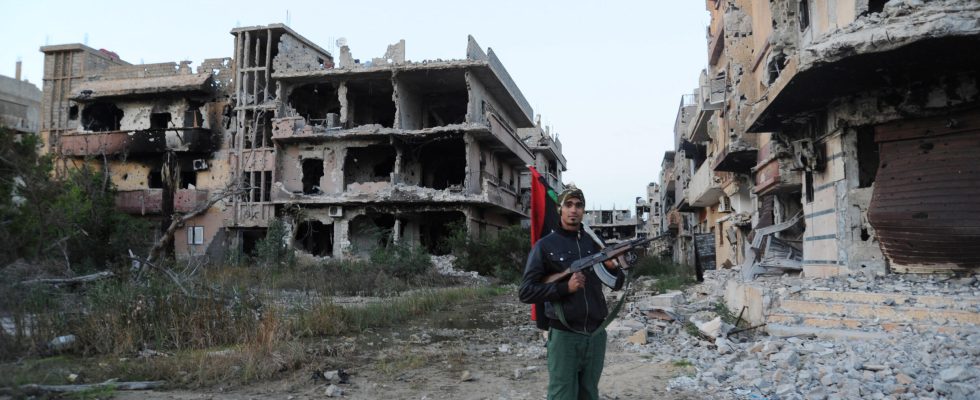According to a report by a UN expert group, more than 22,000 people have been evicted from their homes in downtown Benghazi this year. These residents say they were threatened and forced to give up their property or title deeds, according to the report, only to have the houses then destroyed very quickly. A destruction that is spreading alarmingly “.
5 mins
It is in the name of the reconstruction of the city that the Libyan national army and the brigade led by Saddam Haftar chase the inhabitants of their homes, according to witnesses who wish to remain anonymous for fear of reprisals. Mined areas are still off-limits to the public and intentional demolitions, including of historic neighborhoods, protected heritage sites and many residential units, “ have already caused irreparable damage to the city’s urban architecture and living heritage said the experts.
Explanations with Alexandra Xanthaki, from the UN High Commissioner for Human Rights. She is also special rapporteur in the area of cultural rights and worked on the report.
RFI: What is the assessment of the United Nations experts of the situation in downtown Benghazi?
Alexandra Xanthaki: We believe that there have been various violations of human rights and this is what we expect the parallel government to answer us about. We have information about illegal destruction of buildings and houses and intentional destruction of heritage. This forced people out of their slated homes and all freedom of expression was suppressed, sometimes in an abusive manner, such as arbitrary detention of protesters.
These evictions appear to be happening without any legal basis and without any demolition orders or prior consultation with residents. We are talking here about more than 22,000 inhabitants expelled from the city center of Benghazi by the military groups and in a very short time. Some owners have received compensation, certainly, but insufficient in exchange for their title deed. Others were driven out without any compensation. We are witnessing irreparable and substantial destruction of important heritage sites and buildings that express the historic character of the city.
Read alsoLibya: the historical heritage of Benghazi razed in the name of reconstruction
What impact does this widespread destruction have on the human rights of downtown residents?
As you can imagine, there is a huge impact, both for those directly affected and for the rest of the city’s residents. The right to housing has been violated. Evictions are normally prohibited and must respect international human rights standards. They must be accompanied by measures to rehouse these inhabitants in quality housing of equal value with a guarantee of legal protection. And if there is compensation, it must be adequate.
It is an irreversible and intentional destruction of urban heritage, architectural heritage and living heritage. It’s all gone. This deprives all residents of the city and all people living in Libya of the right to access and enjoy the common heritage, including the right to know and understand the specific history of this city. It is also about the common life, the right to participate in this life, this has an important impact on life and specifically on cultural life. There has been no information, no public communication on the development process of this project.
In recent times, peaceful protest attempts have been met with measures banning gatherings, intimidation, threats, some have even been arbitrarily arrested to force them to shut up.
Will this destruction of Benghazi’s heritage and historical sites surely have a lasting adverse effect on the city?
Yes, and it will never come back. It is a loss of identity, memory and essential culture. For what is culture? It is supposed to be a link that ties the past to the present in a way that gives the possibility of dreaming the future. What’s happening now is that all that memory, all that past is destroyed. It is terrible and we see that this destruction of cultural heritage is intentional. This is something we have seen before and unfortunately we still see it in ethnic conflicts.
What are you asking of Khalifa Haftar’s armed forces and the authorities in eastern Libya?
In general, according to the specific United Nations communication procedures, we invite the authorities to engage in dialogue. We ask the authorities to tell us what happened. We let them know that we know, that the world knows what they did. We ask them on what legal basis did they rely? Did they do an independent investigation into what happened? How was this destruction carried out and planned? Have preventive and protective measures been taken to preserve cultural sites and historical works in the area where there is intentional destruction and demolition. And we tell them that if what we’re hearing from civil society is true, then they’ve violated a significant part of the legal obligations that they have agreed to under international law and human rights. And finally, we ask them about the right of return of displaced persons. Do they have the right to return, to resettle? And what measures has the government taken to ensure that these people have the same quality of life.
